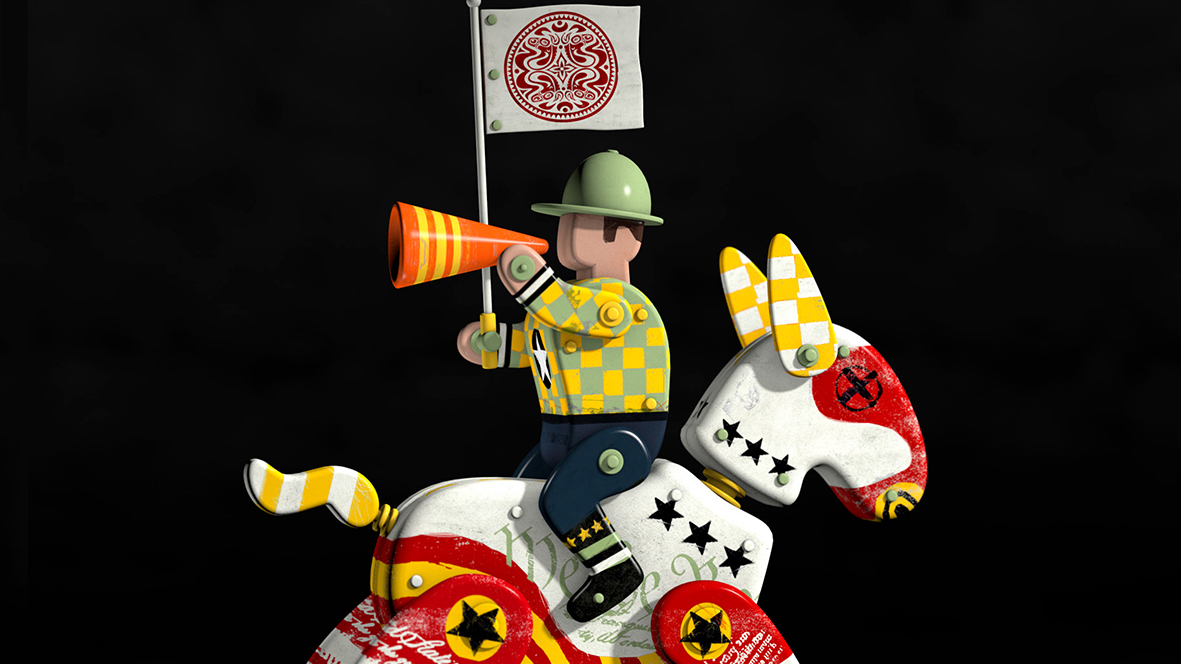You can trust Louder
It’s difficult to know what Gov’t Mule were planning for their new album as they set up their gear in the studio on the day of the American presidential election last November. However, the events of that night have left a pervading mark upon Revolution Come… Revolution Go, starting with the title.
Not that you could have marked Gov’t Mule down as being a particularly political band. Like their fan base, they’re pretty apolitical, although they certainly have a strong sense of their own community. But then you don’t have to be political to find the American election disturbing.
Formed back in the mid-90s by guitarist Warren Haynes to fill up the time between his Allman Brothers commitments, Gov’t Mule have grown into something of an institution among the home-grown jam band scene. Their heavyweight jamming style might sound ponderous to outsiders but to the faithful, it’s just the weight of rock history they’re carrying on their shoulders, something that gets turned into an in-joke on albums like Dark Side Of The Mule and Stoned Side Of The Mule.
Lyrically, the Mule have generally tended towards the lightweight, but not here. The opening Stone Cold Rage – ‘Stone cold rage in the alleyway/Something like I ain’t never seen’ – attempts to make some sense of the anger and confusion they’ve seen across America. Anger from the losers, which is to be expected, but more surprisingly, anger from the winners – do they already know they’ve been duped?
They touch on different aspects of the same theme on Pressure Under Fire, a breakneck ZZ Top-style boogie, and the title track that swings along to a jazzy bass riff. There are no glib solutions on offer, no political polemic, just the realisation that America is now a deeply divided nation and that this issue needs to be addressed.
Elsewhere, the deep soul that Haynes has been mining on some of his solo albums has been brought into the Mule paddock with The Man I Want To Be and Easy Times, along with the more sprightly Sarah Surrender, which has, dare one say it, a Hall & Oates feel.
The old side of the Mule can be glimpsed on the Travelling Tune ballad that harks back to Haynes’s days with Dickie Betts, as well as Burning Point, where bluesman Jimmie Vaughan adds his two-pennyworth.
Sign up below to get the latest from Classic Rock, plus exclusive special offers, direct to your inbox!
They end, aptly, with a hard rock reworking of Blind Willie Johnson’s Dark Was The Night, Cold Was The Ground.
Hugh Fielder has been writing about music for 50 years. Actually 61 if you include the essay he wrote about the Rolling Stones in exchange for taking time off school to see them at the Ipswich Gaumont in 1964. He was news editor of Sounds magazine from 1975 to 1992 and editor of Tower Records Top magazine from 1992 to 2001. Since then he has been freelance. He has interviewed the great, the good and the not so good and written books about some of them. His favourite possession is a piece of columnar basalt he brought back from Iceland.


